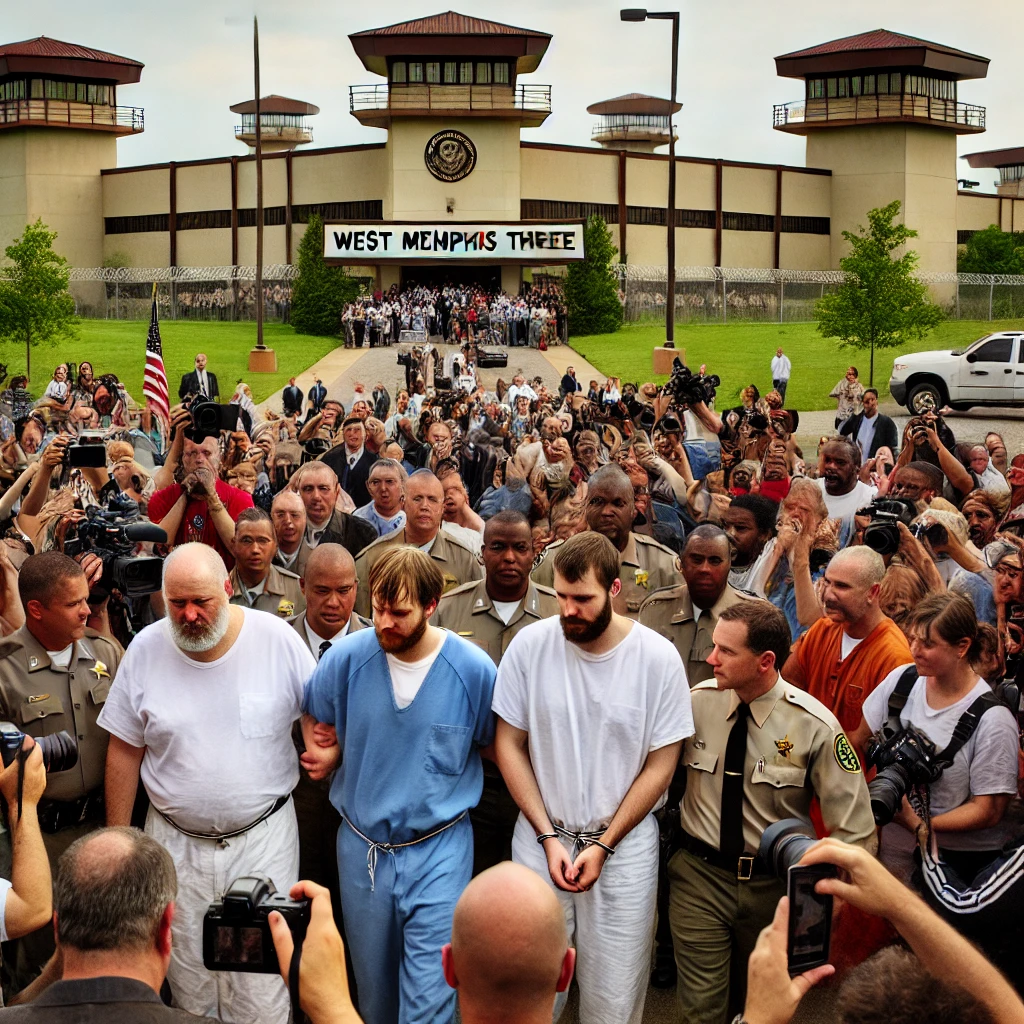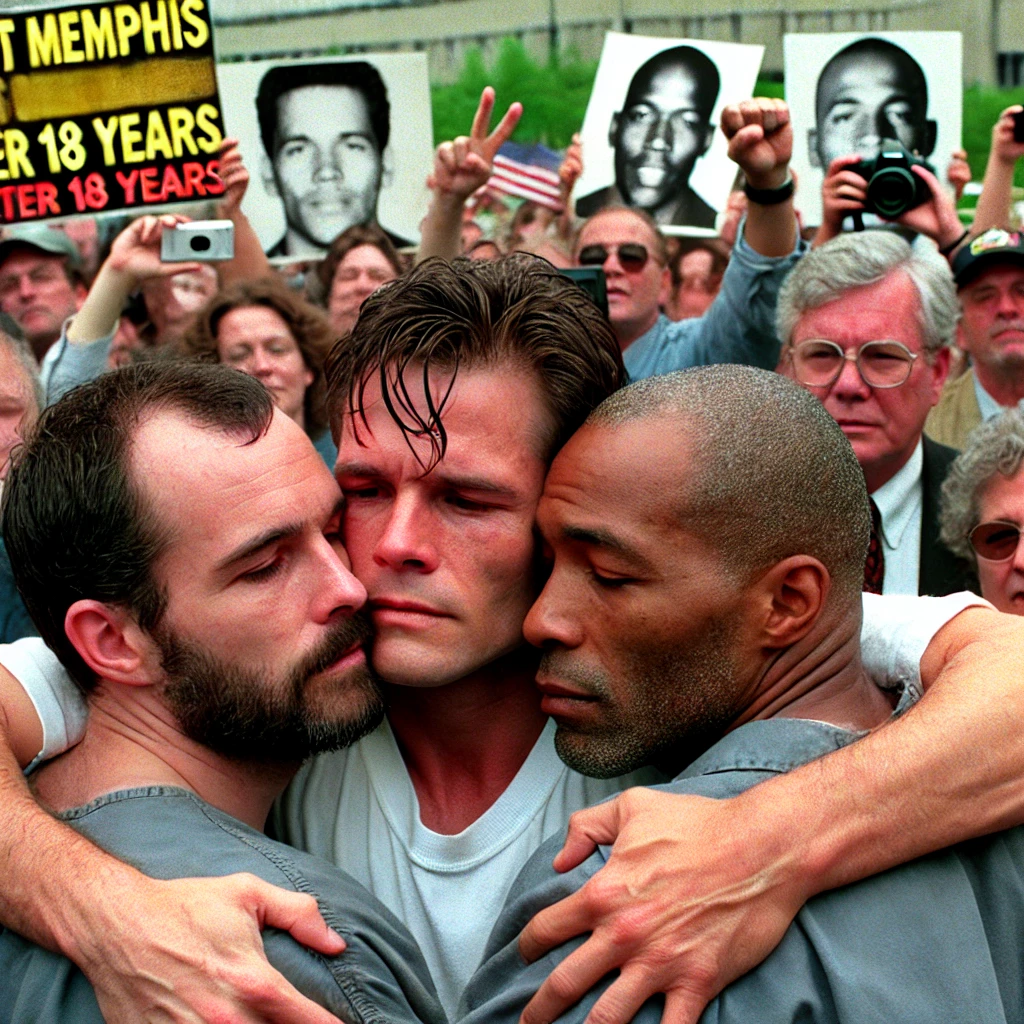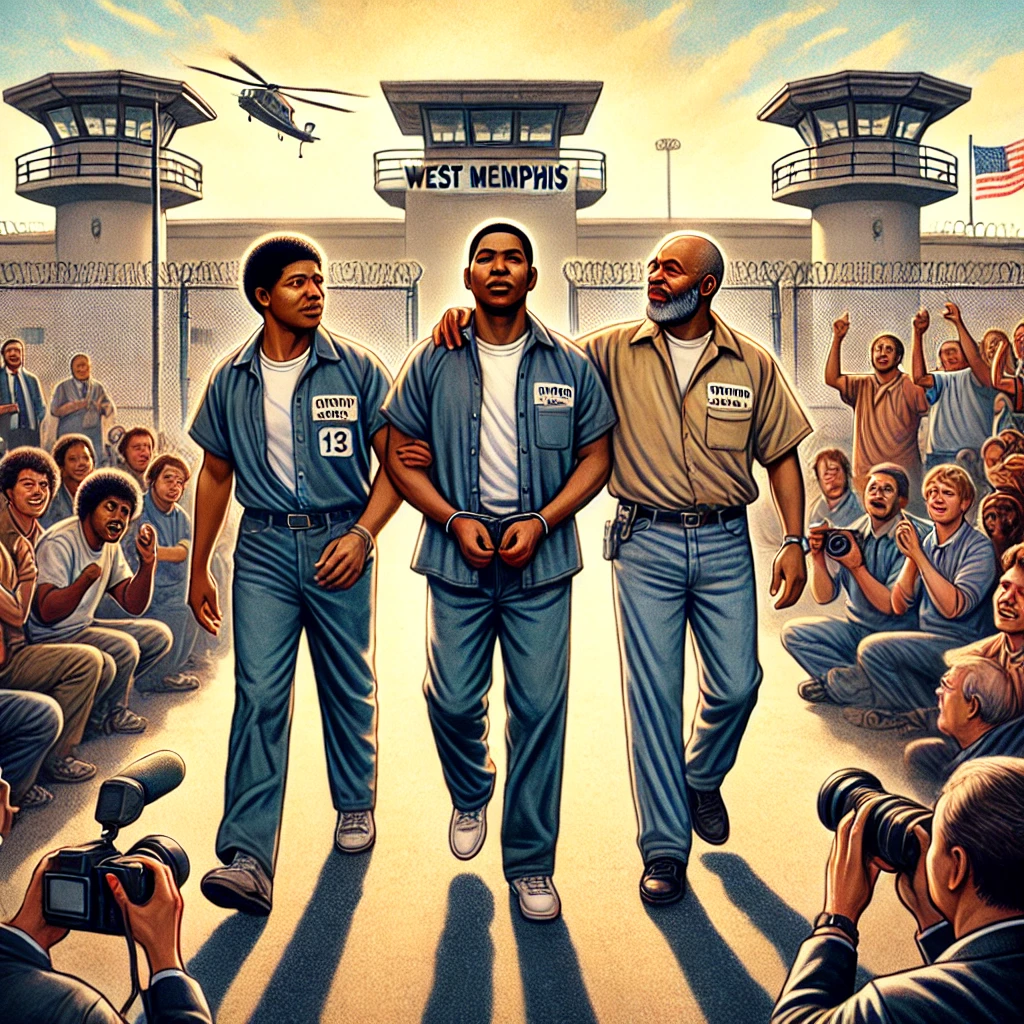On August 19, 2011, the “West Memphis Three” were released from prison after serving 18 years for a crime they maintained they did not commit. The case involved three teenage boys—Damien Echols, Jason Baldwin, and Jessie Misskelley Jr.—who were convicted in 1994 of the murders of three eight-year-old boys in West Memphis, Arkansas. The case gained national attention and controversy, with many questioning the fairness of the trial and the evidence used to convict the three men.
The West Memphis Three were accused of murdering the boys as part of a supposed Satanic ritual. The case was highly publicized and fueled by fears of occult activity. Despite limited and controversial evidence, the three were convicted, largely based on confessions obtained under questionable circumstances and the influence of local hysteria about Satanic rituals. Over the years, numerous supporters, celebrities, and activists rallied for their release, citing the lack of concrete evidence and the possible miscarriage of justice.

The Legal Battle and Release
The legal battle for the West Memphis Three’s release was lengthy and complex. The case drew significant attention from legal advocates and filmmakers, including the documentary series “Paradise Lost,” which highlighted the irregularities and concerns surrounding the trial. Efforts to overturn the convictions included appeals and petitions, which were bolstered by new evidence suggesting that the original convictions were flawed.
In 2011, after extensive legal maneuvers and mounting public pressure, the West Memphis Three were finally released from prison. The release came as part of an Alford plea deal, which allowed the three men to assert their innocence while acknowledging that the prosecution had enough evidence to convict them. This plea deal was a strategic move to gain their freedom, given the prolonged legal battles and the uncertainty of a new trial.

The Aftermath and Impact
The release of the West Memphis Three marked a significant moment in criminal justice reform and the fight against wrongful convictions. Their case brought attention to issues such as the use of coerced confessions, the impact of media sensationalism on legal proceedings, and the broader problem of wrongful imprisonment. The story of the West Memphis Three has become a symbol of the challenges faced by those seeking justice in the American legal system.
Following their release, the West Memphis Three have continued to advocate for criminal justice reform and have been involved in various projects related to their case. Their story has inspired numerous documentaries, books, and advocacy efforts aimed at preventing similar injustices in the future. The case remains a powerful example of the potential for errors within the justice system and the importance of vigilance in safeguarding the rights of the accused.

On August 19, 2011, the release of the West Memphis Three after 18 years of imprisonment highlighted the complexities and challenges of the criminal justice system. The case has had a lasting impact on discussions about wrongful convictions and legal reform, underscoring the need for continued efforts to ensure fairness and justice in legal proceedings. The story of the West Memphis Three serves as a reminder of the enduring pursuit of truth and justice in the face of adversity.
